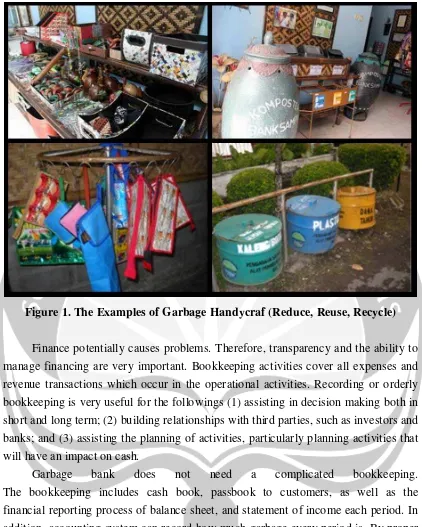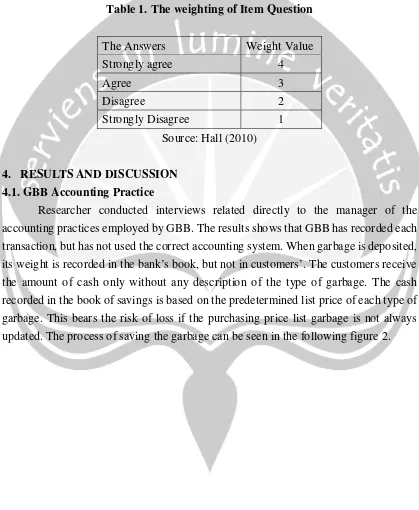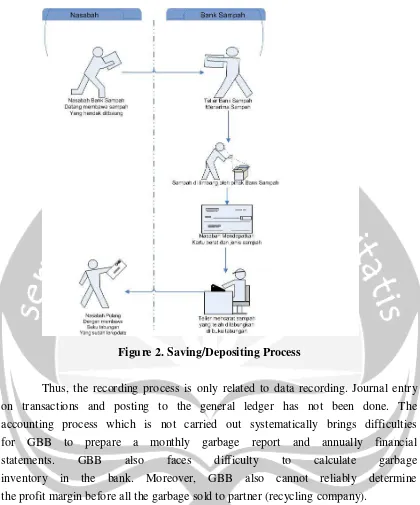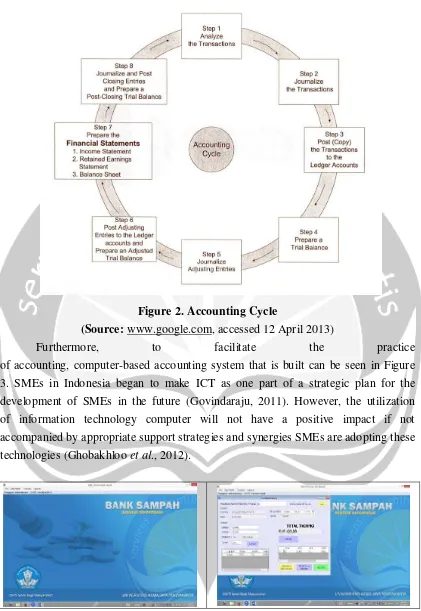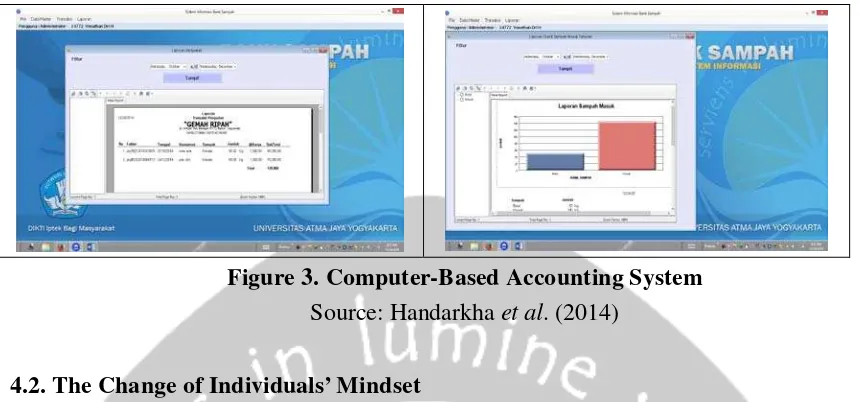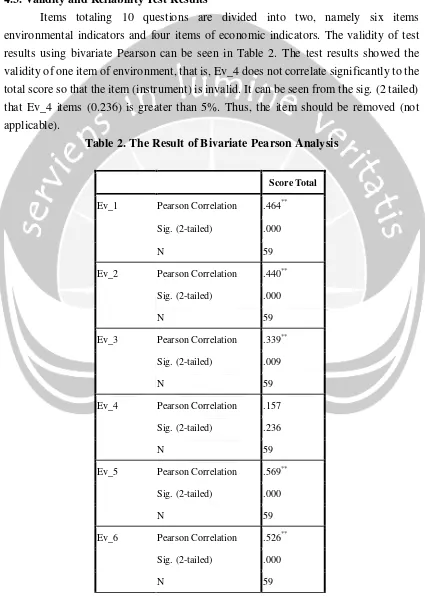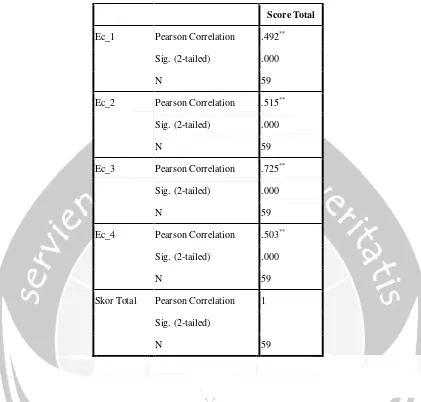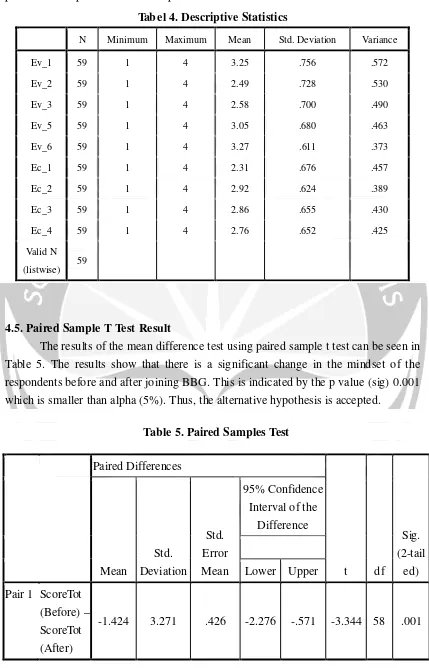Society of Interdisciplinary
Business Research
SIBR-UniKL 2015 CONFERENCE
ON INTERDISCIPLINARY
BUSINESS & ECONOMICS RESEARCH
February 16th – 17th, 2015
The Federal Hotel, Kuala Lumpur, Malaysia
"Interdisciplinary Knowledge Advancement: Past Experience and Future Agenda"
Co-organized by:
Society of Interdisciplinary Business Research
&
Universiti Kuala Lumpur Business School
Conference Proceedings
Volume 4 (2015), Issue 1
k15-001 Conceptual Framework of Factors Affecting SMEs Manufacturing Business Performance
k15-002 Entrepreneurial Orientation Effects on Market Orientation and SMEs Business Performance – A SEM Approach
k15-003 Cultural Orientations, Entrepreneurial Competencies and SMEs Business Success: The Contingent Roles of Environmental Turbulence and Network Competence
k15-004 Impact of Entrepreneur’s Demographic Characteristics and Personal Characteristics on Firm’s performance under the Mediating role of Entrepreneur Orientation
k15-005 Agency Problems and Its Impact and Relevance to Firms Borrowing
k15-006 Occupational Stress Among Entrepreneurs in Malaysian SMEs: A Conceptual Framework
k15-007 NO-BITE Strategy – Experiences and Lessons Learnt from a Dengue Fever Action Research around the Klang Valley
k15-011 Impact of FDI Inflows on Real GDP in Estonia: Evidence from Cointegration Approach and Causality Test k15-012 Does the strategic partnership cut the costs?
k15-013 The Impact of Unlimited Service Guarantee on Consumer Decision Making Towards Luxury Hotel Sectors in Accordance to Malaysian Consumer Protection Act 1999 (CPA)
k15-014 Effect of Big Five Personality Traits on Job Outcomes: Perceptions of Organizational Politics as a Mediator
k15-015 Compliance with Organisation for Economic Co-operation and Development (OECD)'s Principle of Disclosure and Transparency (PDT) by Libyan Listed Public Commercial Banks
k15-016 Independence of Supreme Auditing Institutions in the Light of Mexico Declaration on Independence: A Study of Western Arabic Union Countries
k15-017 Growth and Resource Scarcity: A Mining Project Evaluation in the Asia-Pacific Region k15-018 The Comparability of Outcome Feedback Review on Internal Control Learning
k15-019 Analysis of Customer Mindset Change and Accounting Practice of Garbage Bank as Medium of Edupreneurship a Study on Garbage Bank of Badegan, Indonesia
k15-020 Competency Based Compensation System (As a strategic HR Technique with special reference to Coimbatore)
k15-021 The Study of Happiness: Is It Economists’ Terrain?
k15-022 The Effects of El Niño on the Productivity of Brazilian Agriculture
k15-024 Critical Appraisal on The Application of MicroFinance in Selected Islamic Banks in Malaysia: Issues and Challenges
k15-025 The Impact of Workplace Conflict in an Organization
k15-026 Businessmen’s Awareness Level in the Implementation of Corporate Social Responsibility
k15-027 Trust on Online Social Networking Media Friends of ‘Generation Y’: A Multi-item Measurement Scale k15-028 An impact assessment of corporate social responsibility on commercial banks in Nigeria
k15-029 Influence of Efficiency and Capital Adequacy of Financial Performance's Regional Development Banks in Indonesia
k15-030 The Evaluation of Non-Economic Events towards the LQ-45 Index in Indonesia Stock Exchange by Using Event Study Method
k15-031 Outsourcing Types, Relative Wages, and The Demand for Skilled Workers: Evidence from Indonesia, Japan and Singapore Manufacturing Industries
Society of Interdisciplinary
Business Research
k15-033 Value creation for stakeholders through sustainability: possibility to use Cinnamon wood as substitutes for depleting rainforest timber, a study based on Sri Lanka
k15-034 Overcoming Entrepreneurship Challenges Through Information and Established Agencies
k15-035 Stemming the Tide of Poor Corporate Governance and Persistent Instability: The Nigerian Banking Sector Case
k15-036 Micro-financing as a Catalyst to Socio-Economic Revolution in Nigeria k15-037 VC, Where Art Thou? A Case of Japan's Biotechnology Industry
k15-038 Chinese and cross-cultural negotiations strategies in international business in the global world k15-039 Employability Skills in Marketing Careers: Gap Analysis of Education and Profession
k15-040 A Study on the Analysis of Legal and Economic Factors Affecting Capital Structure in India and Pakistan k15-041 Value Creation & Intention To Buy: Evidence of Employee Competence
k15-042 Perceived Effects of Downsizing on Employees
k15-043 A Study of the Nature of Adaptation to Learning Organization Dimensions: The Case of Jordanian Industrial sector
k15-044 The Determinants of Financial Ratio Disclosures and Quality: Evidence from an Emerging market k15-045 Financial Distress in Business Valuation “What are the Costs of Financial Distress and When They
Occur?”
k15-046 Demand and Supply side Determinants of Agricultural Exports of Pakistan
k15-050 Effect of Auditor and Client Negotiation Experience on Audit Results: An Experimental Test
k15-051 A Study of the Strategic Performance of Shareholding Industrial Organizations in Jordan: Using Z- Score Model
k15-052 Export Diversification and Economic Growth in Sub-Saharan Africa
k15-053 Impact of Perceived Service Quality by Mobile Telecommunication Industry on Customer Satisfaction in Nigeria
k15-054 Ensuring access to justice and equality of arms: is Third Party Litigation Funding the way forward? A European perspective
k15-055 Prospects and Challenges of the Ship Building Industry in Bangladesh- An Empirical Evaluation k15-056 A Causal Nexus Between Investment Human Capital Development and Economic Growth in Nigeria k15-057 Enterprise Risk Management in China: The Impacts on Organizational Performance
k15-058 Women Empowerment and Sustainable Development: Evidence from the North-West Zone of Nigeria k15-059 Contributory Pension Scheme and Increased Employees' Commitment in the Nigerian Public Institutions k15-060 Entrepreneurship Development and Systemic Problem Solving in the Post Economic Recession Nigeria: A
Global Approach to Poverty Reduction
k15-061 Impact of Leadership Styles on Employee’s Performance: An Empirical Study from Saudi Arabia k15-062 Analysis of Medical Savings Accounts as a Mechanism for Financing Private Health Care Expenses in
Poland
k15-064 Informal Sector and Poverty Alleviation Nexus in Sokoto State- Nigeria
k15-065 The Truth Behind Gift-Giving: An Exploratory Study to find Determinants of Gift Selection by University Students: Case Study of Six Universities
k15-066 Factors Affecting Selected Rice Seed Behavior of Farmers in the Rice Value Chain: Case Study in An Giang
k15-067 Measuring the Impact of Business Risks on The Quality of the Auditing Process
k15-068 Transmission Mechanism of Monetary Policy and The Effectiveness of Monetary Policy in Nigeria k15-069 Shopping List VS Actual Shopping For Grocery. Exploring Factors Influencing List Writing and List
Society of Interdisciplinary
Business Research
k15-070 A Study to Check the Applicability of Fama and French, Three-Factor Model on KSE 100-Index From 2004-2014
k15-071 The Effects of Benevolent Leadership in Ameliorating Turnover Problem in Hotel Industry
k15-072 Uncovering the top financial and non-financial variables leading to strategic investment decision making performance
k15-075 Cross-Cultural Marketing and Consumer Information Design k15-076 Postmodern of Retailers’ Brand Users – Clustering Approach k15-077 An Evaluation of Islamic Banking at Bank Muscat, Oman
k15-078 Analysis of Employment Potentials of Cottage, Micro and Small Scale Enterprises in Jigawa State, Nigeria k15-079 An Empirical Study of the Incidence and Determinants of Outsourcing Internal Audit Function in Nigeria k15-080 Analyzing the Relationship between PSDP and GDP Growth with the Growth Rate of the Cement Sector
of Pakistan from 2004-2014
k15-081 Auditing Under Economic Uncertainty: The Case of Auditing Fair Value and Going Concern in Jordan k15-082 Technological Knowledge, International Marketing Capability and International Performance of Born
Global Firms
k15-083 The Analysis of Consumers’ Behavior Towards Modern Retail Store and Traditional Shop (A Case Study of Young Consumers in Lowokwaru District, Malang)
k15-084 Do Investor Sentiment, Weather and Catastrophe Effects Improve Hedging Performance? Evidence from the Taiwan Options Market
k15-085 Dynamic linkage of foreign exchange rate and export elasticity under the trend of regional economic integration
k15-086 Estimating the Hidden Corporate Social Performance of Japanese Firms
k15-087 The predictability of carry trade returns and foreign exchange risk : using a panel smooth transition regression analysis
k15-088 The Struggles to Communicate Among Diverse Work Teams in Korean Companies k15-089 The Impact of Financial Inclusion on Monetary Policy Effectiveness: The Case of Malawi k15-090 Are Cross-border Acquisitions the Enemy of Labor in Canada? An Examination of Labor Effects k15-091 Solution Techniques to the Emission-Economic Dispatch: State of the Art
k15-092 The Interaction among Housing Markets, Stock Markets and Macroeconomic Factors- Bubbles Testing in Hong Kong, Shanghai and Taipei's Housing Markets
k15-094 Corporate Governance Perception Index, Performance and Value of the Firm in Indonesia k15-095 Can PEG predict future returns better than Price to Earnings Ratio?
k15-096 An Analysis of Guam’s Bonds’ Performance
k15-097 Analyzing Factors Affecting Performance of Co-operative in Cimahi
k15-099 The Impact of Supply Chain Management Practices On Competitive Advantage k15-100 The Predicament of Shari’ a Governance in the Saudi Banking System
k15-102 Multi-floor Facility Layout Planning by Using Simulated Annealing-based Procedures
k15-103 Skill Acquisition and Entrepreneurial Development Training Programmes: Pragmatic Approaches to Enhance Social Peace and Stability in Ondo State, Nigeria
k15-104 A Knowledge Management Behavior in the Private College
k15-105 Testing Model Treynor-Mazuy Condition in Bull and Bear Markets
k15-106 Socio-Politic & Economic Sustainability (SPES) and the Roles of Financial Market k15-107 Creative Business Model to Solve Tier 3 Human Trafficking
Society of Interdisciplinary
Business Research
k15-110 Customers' Prescription of Foreign versus Local Brands in the Pharmaceutical Industry of Peshawar (Pakistan)
k15-111 A Review on Past, Present and Emerging Hotel Selection Attributes k15-112 Developing a Corporate Financial Distress Prediction Model
k15-113 Social innovation as a development business in Latin America and Caribbean
k15-114 Participation of Japanese Regional Banks in International Syndicated Loans: Lending Behavior and Explanatory Factors
k15-115 The Role of a Corporate Bond Market in an Economy - and in Avoiding Crises
k15-116 The Influence of Collaboration and Business Process on Competitiveness and Its Implications for Supply Chain Performance of Garment Industry
k15-117 Culture and Foreign Bias in U.S. Global Fund Investment: A Multilevel Model
k15-118 The Influence of The Financial Performance and Macroeconomic Factors to Stock Return k15-119 Analysis of Productive Assets Quality on Bank Health Rating of Commercial Banks in Indonesia k15-120 NOKIA Innovations and Technology Development
k15-121 An Efficiency and Total Factor Productivity Analysis: Considering Iranian Industry
k15-122 Internal and External Corporate Governance Mechanism in Mitigating Financial Distress: Evidence from Indonesian Transportation Industry
k15-123 Developing an Evaluation System for Korean NHRD
k15-124 Factors Affecting Employment after Vocational Training of NHRD in Korea
k15-125 Is the Islamic Economic System a Better Instrument to Eradicate Poverty than Global Taxes? k15-126 The Volatility of Industrial Stock Returns and An Empirical Test of Arbitrage Pricing Theory
k15-127 Analysis of Central Bank Independence and Macroeconomic Performance in 3 Southeast Asia Countries k15-128 Types of Earnings Management, Future Profitability, and Institutional Ownership in Indonesian Banking
Industry
k15-129 Preparing Aging Workers for the Future: Implication for Facilitating Middle-aged Workforce following the Decline of Working Age Population in Korea
k15-130 Fisheries Poverty Reduction in East Java: Using Sustainability Livelihood Approach (SLA)
k15-131 A Historical Perspective on the Effect of Trans-Saharan Trade on the Entrepreneurial Development of West African Societies: Evidence from Northern Nigeria
k15-132 Managerial Perception on Assurance in Sustainability Reporting in Japan
k15-133 Forward Contracts Rewards in Current Financial Markets and Adjusted to Islamic Law k15-134 Corporate Governance in Malaysia: Has MCCG made a Difference
k15-135 Financial Integration, Single Monetary Policy, and Bank Efficiency in the Eurozone
k15-136 Person-Organization Fit and Turnover Intention: Conceptualizing the Moderating Role of Social Exchange Ideology
k15-137 Social Media as the Enable to Customer-to-Customer Interaction in Indonesia Life Insurance k15-139 Eco-efficiency in Libya: The Effects of Industrial Sector
Analysis of Customer Mindset Change and Accounting Practice of
Garbage Bank
as Medium of
Edupreneurship
a Study on Garbage Bank of Badegan, Indonesia
Anna Purwaningsih*
University of Atma Jaya Yogyakarta annapurwaningsih1977@gmail.com
(Corresponding Author indicated by an asterisk *)
Presented at the: SIBR-UniKL 2015 Conference (Kuala Lumpur) on Interdisciplinary Business and Economics Research, 16th-17th February 2015, Kuala Lumpur.
ABSTRACT
This study aims to (1) determine whether there is a change in the individual mindset associated with garbage bank existence and (2) determine the accounting practices in Garbage Bank of Badegan (GBB). Garbage bank is the manifestation of public awareness to actively address the issue of garbage management today. Thus, garbage bank is medium for communal education and entrepreneurship. Its concept basically adopts bank concept. It is not the money which is saved but garbage. Garbage bank also requires professional management, including the application of good accounting system so that accountability and transparency can be run. This research was conducted at the Gemah Ripah GBB in Bantul, Yogyakarta, Indonesia by distributing questionnaires to customers to determine customer mindset change before and after joining the bank. Change of mindset is viewed from environment and the economy standpoint. Having passed the instrument validity test with Pearson bivariate method and reliability test with Cronbach's Alpha Scale method, the questionnaires were distributed. Data processing employed the pair sample t test. The results showed that there was a change in the public mindset before and after they join GBB. Garbage is no longer burned or thrown into the river, but managed into value added products.
Keywords: Garbage bank, Information system, Accounting system, Education and Entrepreneurship (Edupreneurship)
1.1. INTRODUCTION
2 landfill areas and odor effects. It is often difficult for the Department of Public Works to acquire land for final disposal (landfill). Meanwhile, the amount of garbage grows bigger. Today, Indonesian population reaches 250 millions. If on average each family has 3 children, the total numbers of households reaches 50 millions. If every household produces 2 kg of garbage per day, the entire households will produce 100 million kilograms (100 thousand tons) of garbage. How broad are the areas prepared for the landfill?
Therefore, the researcher argues that garbage management based on landfill, which is so far done, is not sufficient to solve the problem. The management should be based on building public awareness to manage garbage so that public education on this matter should be initiated. Thus, garbage is not the government’s responsibility, but every individual citizen’s.
Garbage can be reused and recycled so that garbage has added value and
its volume is reduced. A group of people pioneered
by Bambang Suwerda in Badegan Village, Bantul have managed their garbage. On 23 February 2008, they set up a bank of garbage named 'Gemah Ripah' Garbage Bank of Badegan (GBB), claimed to be the first garbage bank in Indonesia.
GBB has been running approximately six years. Its purpose is to educate the the local community of Badegan to maintain a healthy environment. Its activities include reducing, sorting, reusing, recycling, and saving garbage. Instead of saving unit, GBB also has a recycling business unit
When GBB receiving garbage from customers, GBB weights and records it in a saving account. The account records its weight and cash. The recording process and administration is done in place. The process still runs manual. It is not computerized yet. The accounting system is often not run through a proper process.
.
The Customers of GBB has reached 453 individual customers and 12
customers groups (social
communities and schools), with service every day. Customers are no longer only from Badegan but also from other villages, even from outside the sub-district of Bantul. With increasing numbers of customers, of course, the management is increasingly complex. Accuracy and speed of information are also highly required. Therefore, GBB plans to transform itself from a manual to a computerized system, especially in financial management, so that the error in the
calculation can be avoided. Therefore, GBB
needs proper accounting practices and proper accounting system.
been successful. Change of mindset associated with garbage management would be more complete if it is accompanied by an entrepreneurial spirit. Entrepreneurial spirit will encourage individuals to create opportunities (opportunity creating), not just to look for opportunities (opportunity-seeking), to produce innovation (innovation), and to take measured risk (calculated risk taking) (Ciputra, 2009). With those three things, turning waste and garbage into gold is not impossible.
Thus, the research problems can be formulated as follows: (1) How does GBB work on accounting practices; and (2) Is there any change in the mindset of the
individuals about environmental
health, economics, and accounting practices before and after joining GBB?
2. THEORETICAL AND HYPOTHESES DEVELOPMENT 2.1. Education and Entrepreneurship
The process of educating individuals about health and environmental hygiene is necessary, especially in garbage management. Public education is needed so that the individuals have knowledge and awareness about the importance of garbage management. This is very important, since the government alone may not be able to cope with thousands tons of garbage a day.
In addition to education on garbage management, individuals also need to be given knowledge about entrepreneurship. If people have the spirit of entrepreneurship then the individuals will be able to appreciate added value of garbage. For example, they reduce, reuse, recondition, and recycle household garbage.
Entrepreneurship can be grouped into
four, namely business entrepreneur, government entrepreneur, social entrepreneur, and academic entrepreneur (Ciputra, 2009). Business entrepreneur can
be divided into two, namely
owner entrepreneur and professional entrepreneur. Owner entrepreneur is the creator and owner of the business, while the professional entrepreneur is an individual who has an entrepreneurial power but practices in the company of others. Government entrepreneurship is a leader who has a spirit and entrepreneur skills and who is able to realize the entrepreneurial government. The example of entrepreneurial government is the Prime Minister of Singapore, Lee Kuan Yew (Ciputra, 2009)
Furthermore, a social entrepreneur is the founder of the social organization which raises public funds to carry out social tasks, such as Mother Theresa of Calcutta. The latter category is the academic entrepreneur, namely academics who teach and
4 administer educational institutions with entrepreneural patterns and styles yet maintain the lofty goals of education.
Entrepreneur are those who have
always worked hard and creatively to create business opportunities, have utilized the opportunities gained and then have manipulated the creation of alternatives as new excellent business opportunities. Thus, the entrepreneurial spirit will mobilize the community to create added value over existing garbage with creativity
Excellence is largely determined by creativity. Creativity in turn creates good innovations related to product / service, science and technology, processes, management systems, strategy and marketing policies, and strategies and policies in making alliances and business expansion. Innovation is needed to win the competition. In other words, competition has driven an individual or organization to perform a variety of innovations. Innovation is created due to the high entrepreneurial practices within the individual who is in the organization.
.
Business innovation conceived by entrepreneurs is often associated with the creation of small businesses. This is true, but it is not limited to small businesse. It also can include a larger scale, the so-called intermediate scale. Whatever the shape and scale of its business are, the same thing in entrepreneurship is to encourage the creation of business activities in the organization's business units. GBB is an example of a business unit established with innovation and creativity.
2.2. Garbage Bank
Indonesia government has set up garbage management issued Law No. 18 of 2008 on Garbage Management (Indonesia, 2008) and Regulation of the Minister of Home Affairs No. 33 of 2010 on Guidelines for Garbage Management (Indonesia, 2010). Thus, the legal framework has been created, but it is still inadequate garbage management. Garbage still stays as a problem everywhere, both in cities and towns. Piles of garbage become the source of the disease, leading to clogged drains and flooding; and, make the place look shabby and dirty
In Act 18 of 2008, the government will provide incentives for institutions, agencies or individuals who innovate in garbage management. Incentives can be rewards and/or giving subsidies. Thus, the government is encouraging anyone to participate actively in garbage management.
.
Garbage bank operates like banks in general, and accepts customer deposits and withdrawals. But, the customer saves garbage, not cash in the bank. Garbage will be recorded and subsequently converted into cash. Thus, customers will have cash savings. Savings account can be taken as well as transactions in commercial banks.
garbage and keeps it in a particular room. After a lot of garbage is collected, the bank calls partners to estimate the price of the garbage. After the price agreement, then the bank converse garbage into cash. This will certainly reduces the risk of any price difference between the garbage bank and partners who purchase the garbage (http://www.forplid.net, accessed 21 April 2009
When receiving garbage from customers, GBB weights and records it in a saving account. The account records its weight and cash. The recording process and administration are done in place. The process still runs manually. It is not computerized yet. The accounting system is often not run through a proper process.
).
Customer of GBB has reached 453 individual customers and 12 customer groups (social community and schools). Garbage bank service is performed every day. Customers do not only come from Badegan but also from other villages, even from outside the sub-district of Bantul. Customers grow, and, of course, the management increasingly becomes complex. Demand on accuracy and speed of information is also higher. Therefore, the GBB want to transforms itself from manual system to a computer system, especially in financial management, so that the error in the calculate avoided.
2.3. Accounting Practices of GBB
6 Figure 1. The Examples of Garbage Handycraf (Reduce, Reuse, Recycle)
Finance potentially causes problems. Therefore, transparency and the ability to manage financing are very important. Bookkeeping activities cover all expenses and revenue transactions which occur in the operational activities. Recording or orderly bookkeeping is very useful for the followings (1) assisting in decision making both in short and long term; (2) building relationships with third parties, such as investors and banks; and (3) assisting the planning of activities, particularly planning activities that will have an impact on cash.
Garbage bank does not need a complicated bookkeeping. The bookkeeping includes cash book, passbook to customers, as well as the financial reporting process of balance sheet, and statement of income each period. In addition, accounting system can record how much garbage every period is. By proper financial reporting, the management performance can be monitored easily.
2.4. Changes in Society Mindset
final disposal (landfill) is only temporary solution. Over time, the landfill will not be able to accommodate the tons of garbage. Therefore, garbage management should be done by all citizens. It is not just the responsibility of the government. The government must change the mindset of the individual citizen.
Garbage should be managed from upstream to downstream. Garbage must be managed from the management activities producing garbage up to the landfill management. It is only possible if people are actively involved in their own household garbage management. If each household manages their own waste, the government work will be lessened and garbage problem will be solved.
2.5. Hypothesis Development
The government has issued laws and regulations relating to the management of garbage bank, namely Law No. 18 of 2008 on Garbage Management and Regulation of the Minister of Home Affairs No. 33 of 2010 on Guidelines for Garbage Management (Indonesia, 2008). In addition, based on Law No. 18 of 2008, the government will provide incentives for institutions, agencies or individuals who are creative in garbage management. Incentives can be rewards and or subsidies. Thus, the government is encouraging everyone to participate actively in garbage management.
Currently garbage bank is popular in Indonesia. GBB is one form of community participation in garbage management through innovation and creativity. Willingly, individuals come by themselves to GBB to be customers. Therefore, the formulation of the hypothesis is as follows:
Ha: There is a change in the mindset of the individual before and after becoming customer of GBB
3. RESEARCH METHODS
This research was carried out through direct observation and interviews with GBB managers to determine the extent to which accounting system is required in the bank. In addition, researcher also searches for data by distributing questionnaires. Questionnaires were used to obtain data related to the presence or absence of individuals’ mindset change before and after becoming customers of GBB. The respondents were the customers of GBB.
Questionnaire consisted of 10 questions, which were grouped in two indicators, namely the environment and the economy indicator. There were six items of questions for environmental indicators and four questions for economic indicators.
8 validity and reliability of the above items question. Validity testing was done by
using bivariate Pearson, while the reliability
test used Cronbach's Alpha (Rizkiyani, 2013). After all instruments were valid and reliable, questionnaires distributed to all respondents (Hall, 2010). The number covered 60 respondents (13% of GBB customers). Meanwhile, the weighting of each respondent's answer in the scale is as follows (Table 1):
Table 1. The weighting of Item Question
The Answers Weight Value
4 Strongly agree
3 Agree
2 Disagree
1 Strongly Disagree
Source: Hall (2010)
4. RESULTS AND DISCUSSION
4.1. GBB Accounting Practice
Figure 2. Saving/Depositing Process
Thus, the recording process is only related to data recording. Journal entry on transactions and posting to the general ledger has not been done. The accounting process which is not carried out systematically brings difficulties for GBB to prepare a monthly garbage report and annually financial statements. GBB also faces difficulty to calculate garbage inventory in the bank. Moreover, GBB also cannot reliably determine the profit margin before all the garbage sold to partner (
Encouraged by these conditions, the researcher offers solution in the form of a systematic application of accounting and an accounting which is in accordance with generally accepted accounting standards in the manufacture of computerized accounting systems ranging from the transaction, recording, up to financial reporting.
recycling company).
10 Figure 2. Accounting Cycle
(Source:
Furthermore, to facilitate the practice
Figure 3. Computer-Based Accounting System Source: Handarkha et al. (2014)
4.2. The Change of Individuals’ Mindset
This study tried to see whether individuals who belong to GBB undergo mindset change associated with garbage management in their home environment or if they become customers of the bank just because they follow the trend in Indonesia. Therefore, this study attempts to measure their attitude towards garbage before and after becoming GBB customers.
Data were obtained through questionnaires. Questionnaires were distributed as many as 60 copies and 59 copies (98%) questionnaires were filled completely. 70% of the survey respondents were female and 30% were male. From the data it can be seen that the majority of bank customers are women.
Respondents’ Motivation of joining GBB can be
summarized as follows: 1) customers earn extra money (30%); 2) GBB is managed professionally (30%); 3) GBB is managed transparently (10%); the customers get the knowledge of garbage management (50%); and 4) the customers may be initiate garbage bank in their neighborhood (30%). The total percentage does not reach 100% because each respondent may have more than one motivation. The biggest motivation is to gain knowledge of garbage management. This proves that the awareness of the community to participate in the higher garbage management. Meanwhile, respondents' answers related to the professional management of GBB only reach 10
After becoming customer, respondents obtain some benefits from the existence of garbage bank, among others, added money (50%), clean and healthy home environment (70%), and pride of participation in keeping the environment (60%), and pride of following trend (10%). The total percentage does not reach 100% because each respondent can obtain a double benefit. The benefits of healthy and clean home environment reach 70%. This fact proves that individuals are starting to participate in garbage management in their home environments. If every citizen manages household garbage independently the issue of garbage management in Indonesia will be resolved.
12 In fact, 60% of respondents state that they feel proud because they can act in keeping the environment clean. This proves that the individuals began to realize the self-actualization of their participation.
4.3. Validity and Reliability Test Results
Items totaling 10 questions are divided into two, namely six items environmental indicators and four items of economic indicators. The validity of test results using bivariate Pearson can be seen in Table 2. The test results showed the validity of one item of environment, that is, Ev_4 does not correlate significantly to the total score so that the item (instrument) is invalid. It can be seen from the sig. (2 tailed) that Ev_4 items (0.236) is greater than 5%. Thus, the item should be removed (not applicable).
Table 2. The Result of Bivariate Pearson Analysis
Score Total
Ev_1 Pearson Correlation .464**
Sig. (2-tailed) .000
N 59
Ev_2 Pearson Correlation .440**
Sig. (2-tailed) .000
N 59
Ev_3 Pearson Correlation .339**
Sig. (2-tailed) .009
N 59
Ev_4 Pearson Correlation .157
Sig. (2-tailed) .236
N 59
Ev_5 Pearson Correlation .569**
Sig. (2-tailed) .000
N 59
Ev_6 Pearson Correlation .526**
Sig. (2-tailed) .000
Score Total
Ec_1 Pearson Correlation .492**
Sig. (2-tailed) .000
N 59
Ec_2 Pearson Correlation .515**
Sig. (2-tailed) .000
N 59
Ec_3 Pearson Correlation .725**
Sig. (2-tailed) .000
N 59
Ec_4 Pearson Correlation .503**
Sig. (2-tailed) .000
N 59
Skor Total Pearson Correlation 1
Sig. (2-tailed)
N 59
Meanwhile, the reliability test is conducted by using Cronbach's Alpha. The variabel is reliable if Croncbach's Alpha value is greater than 0.6. The result shows that the value of Cronbach's Alpha is 0685 (greater than 0.6). So, the variable is said reliable.
Tab le 3. Reliability Analysis-Scale (Alpha) Cronbach's Alpha Cronbach's Alpha Based on
Standardized Items
N of Items
.658 .667 9
4.4. Descriptive Statistics
14 presents descriptive statistics complete data.
Tab el 4. Descriptive Statistics
N Minimum Maximum Mean Std. Deviation Variance
Ev_1 59 1 4 3.25 .756 .572
4.5. Paired Sample T Test Result
The results of the mean difference test using paired sample t test can be seen in Table 5. The results show that there is a significant change in the mindset of the respondents before and after joining BBG. This is indicated by the p value (sig) 0.001 which is smaller than alpha (5%). Thus, the alternative hypothesis is accepted.
Individuals’ mindset associated with habits in garbage management has changed before and after becoming garbage bank customers. Before becoming a garbage bank customers, majority of customers consider that garbage is a source of disease. Thus they always burn trash. But after becoming customer of garbage bank, they assume that the garbage is not the source of the disease but it is a source of additional income. Garbage are collected and sold to the bank. Even the garbage bank teaches them to add value to garbage, that is, by changing food, detergent, coffee wrappers and so become attractive handicrafts. The handicrafts are wallet, bag, vest, flower vases and others. In fact there are some customers who make garbage management as a new profession, namely garbage handicraft makers. They sell the handicrafts to markets or souvenir.
In this way, the entrepreneurial spirit has emerged. How individuals can create opportunities, create innovation and hone their creativity to perform value-added activities ranging from one type of craft to various kinds of handicrafts with varying price and usability. Thus, the movement of garbage bank is really a means of education for the community in managing garbage. Even, it becomes a means of deseminating the entrepreneurial spirit to individual members and the surrounding community.
5. CONCLUSION
GBB does not apply appropriate accounting system with generally acceptable accounting standards. The standardized and timely financial statements need to be reported. Thus the financial statements function as a basis for decision-making. In addition, GBB now is starting to be trusted by community so that its professionalism needs improvement
The result of data test obtained by distributing questionnaires to GBB customers, using paired sample t test showed that there is a change in the mindset of customers before and after becoming GBB. At first, they regarded garbage as a source of disease and they always burned it. Now they see garbage as additional income for the family. They can directly sell to the bank or process garbage into beautiful and precious handicrafts.
.
16 ACKNOWLEDGEMENTS
Partly, this research is funded by Science and Technology Grant for Community (Hibah Iptek bagi Masyarakat) 2014, a Indonesia Directorate of Higher Education
(DIKTI) program.
REFERENCES
Ciputra. (2009). Ciputra Quantum Leap: Entrepreneurship Mengubah Masa Depan Bangsa dan Masa Depan Anda. Jakarta: PT Elex Media Komputindo.
Gerakan Bank Sampah dari Bantul 2009.
Ghobakhloo, Morteza; Tang Sai Hong, Mohammad Sadegh Sabouri, and Norzima Zulkifli. (2012). Strategies for Successful Information Technology Adoption in Small and Medium-sized Enterprises. www.mdpi.com/journal/information: Information 2012, 3, 36-67.
Govindaraju, R. (2011). E-commerce Adoption by Indonesian Small, Medium, and Micro Enterprises (SMMEs): Analysis of goals and barriers. This paper appears in: Communication Software and Networks (ICCSN), 2011 IEEE 3rd International Conference on.
Hall, Shane. (2010). How to Use Likert Scale in Statistical Analysis. Online, accessed 31 October 2010.
Handarkha, Yonathan D., Anna Purwaningsih, dan Agustinus Gatot Bintoro. (2014). IbM Bank Sampah Sebagai Media Edupreneurship Di Desa Badegan Dan SDK Eksperimental Mangunan. Annual Report of Science and Technology Grant for Community, a Indonesia Directorate of Higher Education (DIKTI) program. Universitas Atma Jaya Yogyakarta (unpublished).
Republik Indonesia. (2008). Undang-undang RI No. 18 tahun 2008 tentang Pengelolaan Sampah. www.new.menlh.go.id. Accessed 30 October 2012.
Republik Indonesia. (2012). Peraturan Menteri Dalam Negeri No. 33 tahun 2010 tentang Pedoman Pengelolaan Sampah. Retrieved 30 October 2012, from
bpp.depdagri.go.id.
Rizkiyani, Alifiana Hafidian. (2013). Skala Likert sebagai Teknik Evaluas
